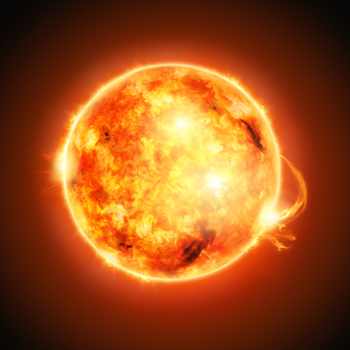| Previous issues | Subscribe |
| STUDENTS & GRADUATES |
|---|
|
|
|
|
|
|
|
|
| TECHNOLOGY |
|---|
|
|
|
|
| INITIATIVES - LANGUAGE |
|---|
| INTERNATIONAL |
|---|
| HIGHLIGHTS |
|---|
|
|
|
|
|
|
|
|
|
|
|
|
|
|
|
Co-editors: Elissa Allerhand, Ilene Bloch-Levy Photographer: Gideon Markowitz Graphic Designer: Laura Grinberg Web Manager: Batsheva Engelberg-Behr Web Master: Sonia Pechersky |
| RESEARCH |
|---|
The Sun's Cycles Shutterstock/James Thew
Shutterstock/James Thew
These were some of the concerns of attendees to the Open University's "Solar Cycle" Conference where experts from overseas and Israel shared their knowledge, predictions and ideas for preparing for the possible direct consequences of the 24th solar cycle. Solar Cycle 24, which began in 2008, will be peaking within the next few months and the potential for impacting on space and earth communications infrastructures is great. Since the 18th century, scientists have been monitoring solar cycles, quantifying their activities. A solar cycle waxes and wanes in 11-years cycle and is characterized by a higher frequency of sun spots and sun storms during the maximal years and virtually no such events during the minimal years. The previous solar cycle, Solar Cycle 23, peaked in 2000-2002 with many furious solar storms. That cycle decayed as usual to the present last period of unusually extended quiet leaving solar physicists little to do other than wonder when the next cycle would begin. Questioning the ModelsThis 24th solar cycle officially began in 2008, and not only did the period of wondering when it would begin end, but also solar scientists began to notice a difference in the plotting of their standard models. "Recently, the 'point' from the sun's last long minimum (whose length was extraordinary, surprising scientists) has been characterized by growing activity," according to Prof. Yoav Yair, an atmospheric scientist and Dean of Development and Learning Technologies in the Department of Life and Natural Sciences at the Open University of Israel.How this impacts on our lives was a key subject of the conference. "Sun storms impact on the earth's magnetic field and can, therefore, interfere in or damage electrical infrastructures, such as power lines and generators, photo communcation satellites and spy equipment, to name a few," according to Prof. Yair. The reliability of current models used by scientists and their accuracy in predicting future trends was another subject discussed. Dr. Ofer Cohen of the Smithsonian-Harvard Observatory and conference participant questioned the accuracy of some models that solar scientists rely upon. "We cannot claim yet that we fully understand the solar cycle, as we do not have reliable tools to predict. The advancement in computational power should significantly increase our ability to accurately model the solar cycle and to have better cycle prediction." Dr. Cohen also urged greater inter-disciplinary cooperation among scientists. "We need to better understand the solar-heliospheric magnetic connection in terms of the solar cycle. The current separation of domains causes incomplete investigation of the magnetic system. We also need to improve our knowledge about the solar-stellar collection and stellar activity." |
